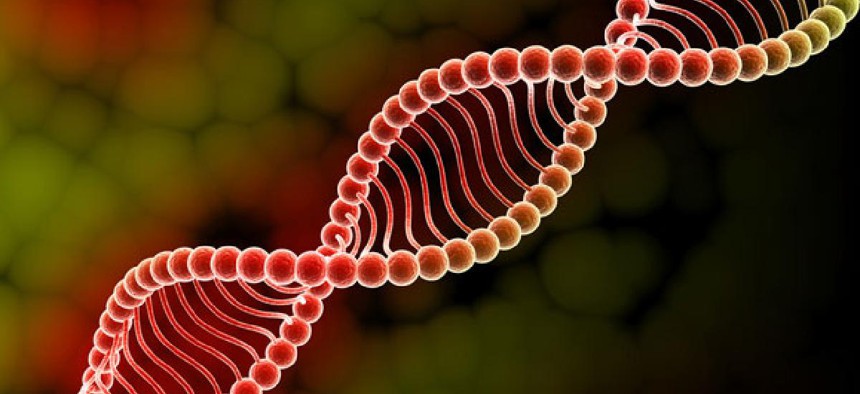Should we be able to patent human genes?

mathagraphics/Shutterstock.com
Decision will impact health costs.
Depending on how the Supreme Court decides on the case it decided to take up Friday afternoon, biotech companies might soon be able to patent ownership of essential parts of our bodies. Actually, one company, Myriad, already has patents for two genes, BRCA 1 and 2, that when found in women signal a higher likelihood of breast cancer. Weird, right? Because of that legal ownership, Myriad claims exclusive rights to genetic screenings for the disease, which, as NYU's Miles Jackson points out, makes it very expensive for women who might not have the money. It also makes getting a second opinion impossible. In addition, holding onto the isolated gene could prevent further research and breakthroughs on the gene.
The Court will rule on The American Civil Liberties Union versus Myriad next year, hearing oral argument in March, the justices announced Friday. The ACLU, on behalf of "researchers, genetic counselors, women patients, cancer survivors, breast cancer and women's health groups, and scientific associations representing 150,000 geneticists, pathologists, and laboratory professionals," asserts that human genes can't be patented because they are a "product of nature." That falls under physical phenomena and not discoveries or inventions. But the company argues that isolating the gene took "significant skill, insight and invention on the part of Myriad's inventors."
(Image via mathagraphics/Shutterstock.com)





